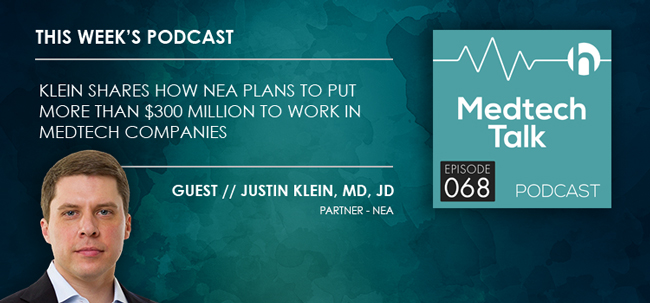Too often we define the Medtech sector by the number of dollars raised, IPOs helped or companies sold. But the focus neglects the very foundation of the sector: the people. Join the Medtech Talk Podcast each month to hear from entrepreneurs, investors and executives who spend their days developing the tools that make sick people well and health care more efficient.
